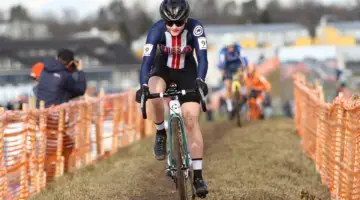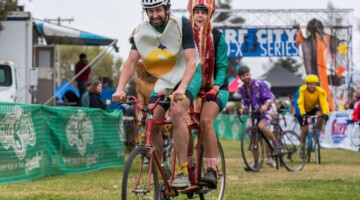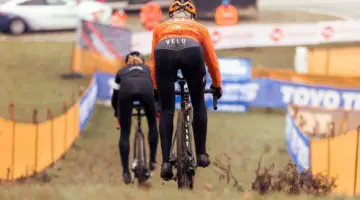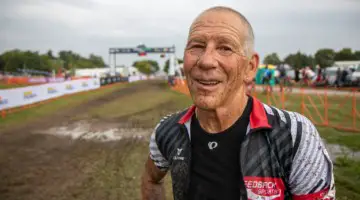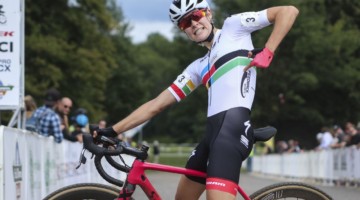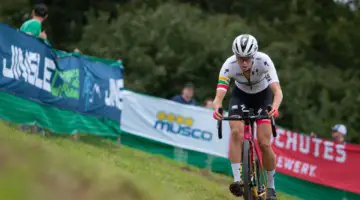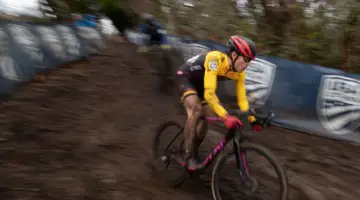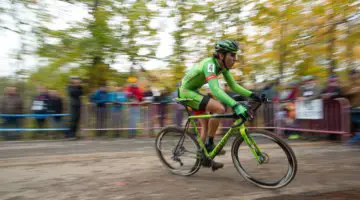Did you feel any burnout or frustration at other riders last season? Coach Chris Mayhew with JBV Coaching brings us some advice (advice that, yet again, is relevant in the “real world”) to keep us riding and racing happier in today’s Training Tuesday column.
I don’t think anyone gets into the sport of racing bikes without having ambitions. Some people are taking their natural Type A disposition and channeling it into the sport. Others of us find that cycling really lights our fire and we’re able to discover a previously unknown goal-oriented self. In either case, athletes soon find themselves inspired to reach particular goals. And that’s great. Goals keep us motivated, focused, and interested in the sport. They also provide a sense of achievement when we reach them and act as benchmarks for our progress. But cycling is a very hard sport. As a friend once said “I used to win, then I upgraded.” So let’s talk about goal setting that doesn’t set you up for failure or disappointment.
The easiest way to think about goal setting is outcome goals versus process goals. Outcome goals are “I want to win” or “I want to win the series.” Or, right now, since you’re [probably] not racing, they may take the form of “I want to reach X watts per kilogram at threshold.” Those are great goals, and you should have them. Write those down! But as I read recently, “a goal without a plan is just a wish with a deadline.”
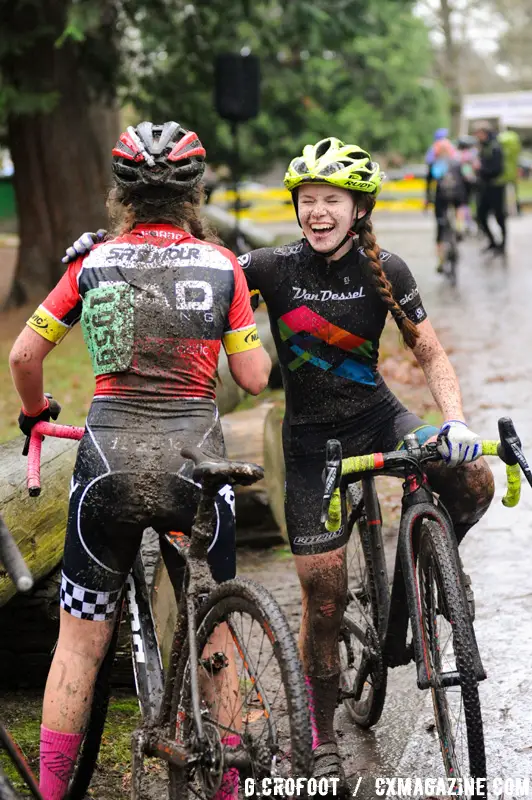
We’re doing this for fun, after all, aren’t we? © Geoffrey Crofoot
How are you going to achieve those goals? What’s the plan? Think about taking a five hour car trip to another city. Sure, getting there is the goal, but how are you going to accomplish it? Do you have a car? Do you have gas in it? Do you have directions? A good podcast to listen to on the way? Awesome snacks? Getting to your destination is an outcome goal. Process goals are all those other things, and if you don’t nail those down the outcome goal doesn’t generally happen.
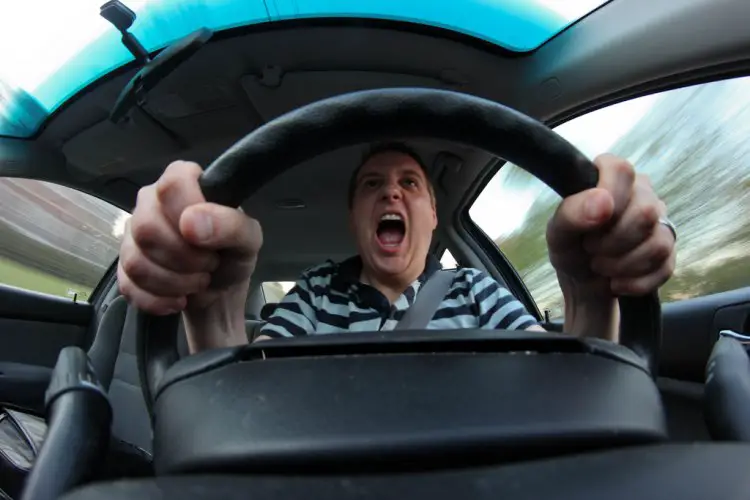
Don’t get stuck in a mental traffic jam. Photo by Jason McGorty (Flickr)
Let’s continue with that analogy. Let’s say there’s a huge traffic jam on the way that holds you up for an hour. Now your five hour trip becomes six and a half hours. You missed your goal. Do you think “man, I’m such a failure,” or “all these idiots around me made me late!”? That’s often what happens in bike racing with outcome goals. So much is beyond your control during a race. The weather, the course, the actions of other people. An exclusive focus on outcome goals tends to translate into a focus on things outside of our control. Since we have no control over them, they can easily become very frustrating. And since we’ve not given ourselves a plan to improve on those things, they can lead to burnout very quickly. “HOLD YOUR LINE!” is a perfect example of this. When you hear that, someone is focused on things outside their control. There will always be squirrely riders. Those people will always make getting a clean shot to the where you want to go difficult. But if your goal is ” I’m going to make my front wheel my responsibility,” you’ve now moved to a process goal that you can work on improving every single race.
Since we have no control over them, they can easily become very frustrating.
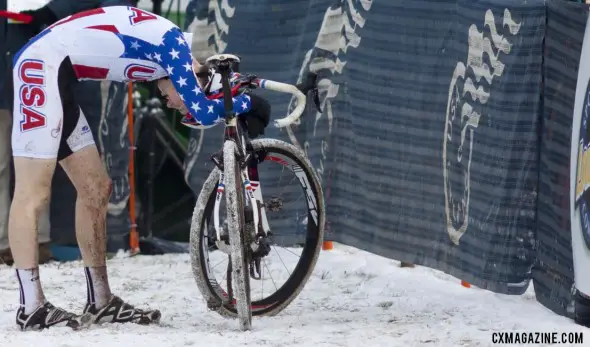
Just because things are in your control doesn’t mean they’ll be easy. Remember to practice self-care and compassion, too. © Andrew Yee, Cyclocross Magazine
Once you can get into the mindset of process goals you’re cooking with gas! You’ve moved from “that idiot kept me from the win” to “I didn’t win because I didn’t do what I needed to. Next time I will.” You’re not focused on things you can’t control. You have a goal for the next race that you can focus on and that is under your control. In my experience, people focused outwardly (i.e. – on the actions of other people) don’t last very long in this sport. It gets frustrating very quickly and they burn out, often not without some angry outbursts along the way. The people that learn to find joy in the little steps and the process of getting better tend to last longer in the sport and enjoy it more along the way. I also think they learn far more about themselves during the journey. Sure, you want to hit X watts per kilogram. But how? Now you’re learning about training methods, nutrition, and your own physiology along the path towards those goals. Maybe you’re a slow twitcher and twenty minute threshold intervals aren’t the best workout for you. If the last thing you consumed was a Diet Coke at 3:30pm before your 7pm intervals, you’re probably not going to get the most out of your workout. How can you find an extra half hour in your day to train or sleep? An extra hour per week to spend with your family? Focus on the things that will enable and empower you to have your best result, and less on the absolute result. John Verheul, my boss, often says that if all the individual steps in your preparation and race execution are done correctly, then the result is what it should be. Why spend extra mental energy worrying about it?
How can you find an extra half hour in your day to train or sleep? An extra hour per week to spend with your family? Focus on the things that will enable and empower you to have your best result, and less on the absolute result.

Falling asleep before your race, at the race, is probably a sign you need more rest. See Training Tuesday: Focusing on Rest and Recovery for more tips. photo: always shooting
In practical terms, how can we apply this? Right now you probably have some training goals you’d like to achieve. A benchmark time up a climb or a wattage based goal. Those are great. Like I said, write them down! But then focus on the steps that lead to enabling and empowering your best result. Did you eat the right thing at the right time? Did you wear the right clothing for your workout? Did you pick the right workout(s) and execute them correctly? Did you refuel properly after your ride? Did you take 15 minutes to stretch or do some other self care to enable a subsequent intense day of training? Those are all small process goals that really add up over time. They’re all (more or less) under your control. And they are skills and knowledge that you will then always have. Even if you’re coming back from injury or a long layoff, you’ll know how to make the journey, even if the end goal isn’t that same that year.
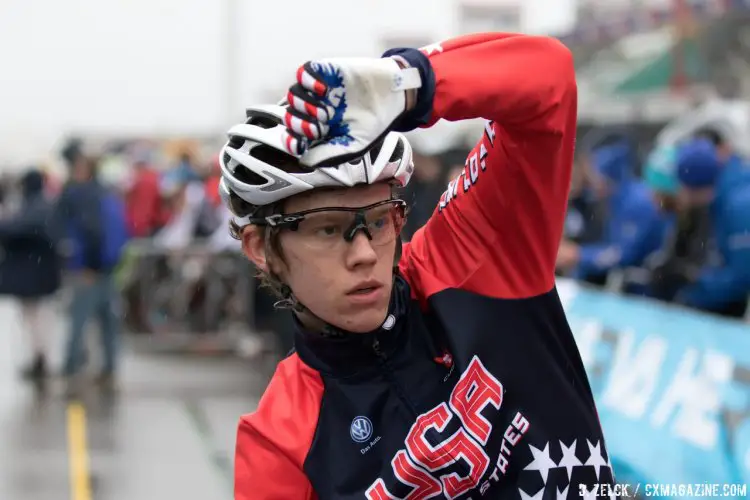
Spencer Petrov performs one last stretch before the warm-ups come off. © Danny Zelck / Cyclocross Magazine
When you switch your focus to racing, it’s still the same outlook. I roughly know what my placing goals are when I get to a race. But there’s so much that goes into that. Arriving early enough to get in course recon, figuring out the trickier parts of the course, timing nutrition, managing hydration (especially the last couple of hot seasons!) all go into achieving that result. And yes, we still do dumb things, and mistakes are made. Often that guy is me. But that just becomes something to focus on for next week. Take that ambition you have and channel it into improving yourself and learning along the journey towards achieving your goals. Don’t use your goal oriented nature as a cudgel with which to beat yourself at every race. That’s not fun or productive for anyone.
Can’t get enough? Browse all of our Training and Technique Tuesday pieces here from coaches Mayhew and others. Mayhew expects to contribute Training Tuesday installments every two weeks in the off-season. Learn more about Mayhew at JBVCoaching here.

